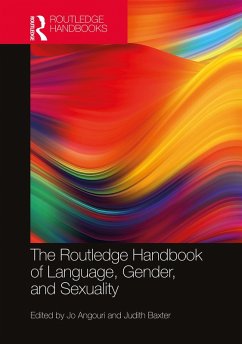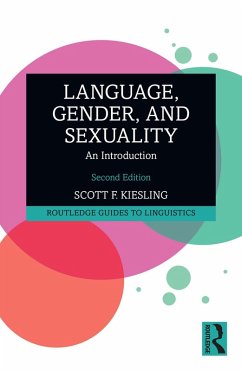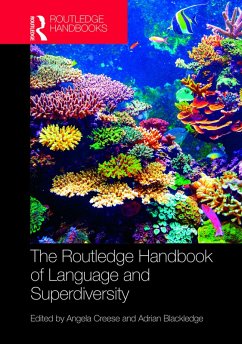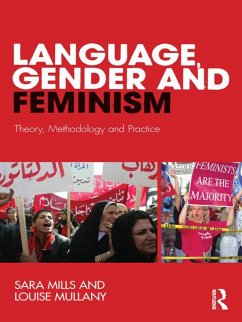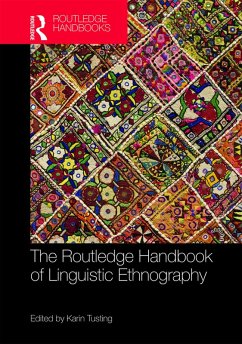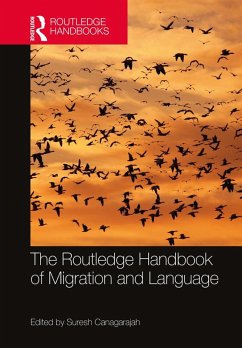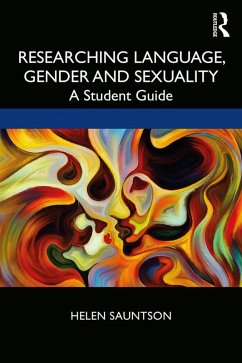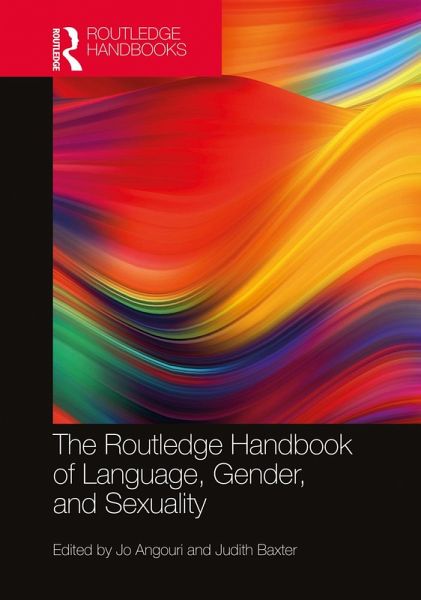
The Routledge Handbook of Language, Gender, and Sexuality (eBook, ePUB)
Versandkostenfrei!
Sofort per Download lieferbar
44,95 €
inkl. MwSt.
Weitere Ausgaben:

PAYBACK Punkte
22 °P sammeln!
Shortlisted for BAAL (British Association for Applied Linguistics) Book Prize 2022The Routledge Handbook of Language, Gender, and Sexuality provides an accessible and authoritative overview of this dynamic and growing area of research. Covering cutting-edge debates in eight parts, it is designed as a series of mini edited collections, enabling the reader, and particularly the novice reader, to discover new ways of approaching language, gender, and sexuality.With a distinctive focus both on methodologies and theoretical frameworks, the Handbook includes 40 state-of-the art chapters from interna...
Shortlisted for BAAL (British Association for Applied Linguistics) Book Prize 2022
The Routledge Handbook of Language, Gender, and Sexuality provides an accessible and authoritative overview of this dynamic and growing area of research. Covering cutting-edge debates in eight parts, it is designed as a series of mini edited collections, enabling the reader, and particularly the novice reader, to discover new ways of approaching language, gender, and sexuality.
With a distinctive focus both on methodologies and theoretical frameworks, the Handbook includes 40 state-of-the art chapters from international authorities. Each chapter provides a concise and critical discussion of a methodological approach, an empirical study to model the approach, a discussion of real-world applications, and further reading. Each section also contains a chapter by leading scholars in that area, positioning, through their own work and chapters in their part, current state-of-the-art and future directions.
This volume is key reading for all engaged in the study and research of language, gender, and sexuality within English language, sociolinguistics, discourse studies, applied linguistics, and gender studies.
The Routledge Handbook of Language, Gender, and Sexuality provides an accessible and authoritative overview of this dynamic and growing area of research. Covering cutting-edge debates in eight parts, it is designed as a series of mini edited collections, enabling the reader, and particularly the novice reader, to discover new ways of approaching language, gender, and sexuality.
With a distinctive focus both on methodologies and theoretical frameworks, the Handbook includes 40 state-of-the art chapters from international authorities. Each chapter provides a concise and critical discussion of a methodological approach, an empirical study to model the approach, a discussion of real-world applications, and further reading. Each section also contains a chapter by leading scholars in that area, positioning, through their own work and chapters in their part, current state-of-the-art and future directions.
This volume is key reading for all engaged in the study and research of language, gender, and sexuality within English language, sociolinguistics, discourse studies, applied linguistics, and gender studies.
Dieser Download kann aus rechtlichen Gründen nur mit Rechnungsadresse in A, B, BG, CY, CZ, D, DK, EW, E, FIN, F, GR, HR, H, IRL, I, LT, L, LR, M, NL, PL, P, R, S, SLO, SK ausgeliefert werden.




